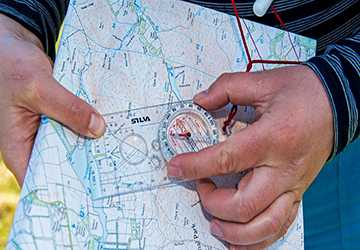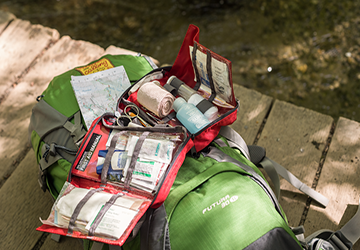Top 10 Hiking Tips for Beginners
Hiking transcends a mere stroll in the woods; it's an expedition into the splendor of nature, a chance to disconnect from the daily hustle, and an avenue for fresh challenges. The idea can be exhilarating yet slightly daunting for those new to hiking. Where should you begin? What gear is essential? How do you ensure safety on the trail?
Rest assured, budding hiker, for we are here to assist you. Within this guide, we shall furnish you with the foremost ten hiking recommendations for novices, delivering practical counsel in an approachable style.
1.Choose the Right Trail
If you're new to hiking, selecting the right trail that matches your fitness level and experience is essential. Avoid going full "Into the Wild" on your initial hike; begin with something modest and progress from there. Beginner-friendly trails are typically well-signposted and have clearly defined paths, simplifying navigation. Seek out routes with minimal elevation changes and shorter distances, ideal for initiating your hiking journey.
Keep in mind it's not a competition. Start with shorter hikes, around 2-3 miles, and gradually extend the distance as you enhance your endurance. To discover suitable trails in your vicinity, consult local websites or utilize hiking apps.

2.Gear Up Wisely
You don't need fancy gear to start hiking, but having the right essentials can make your experience much more enjoyable and safe. Here's a list of must-haves:
1. Footwear: Invest in high-quality hiking shoes or boots with ankle support and durable soles. Prioritize comfort and select footwear suitable for the specific terrain you intend to explore.
2. Clothing: Embrace a layered clothing approach to adapt to changing weather conditions. Cotton is not the best choice as it doesn't effectively wick moisture; instead, opt for moisture-wicking and breathable fabrics.
3. Backpack: Opt for a compact daypack to carry essential items such as water, snacks, a first-aid kit, and additional layers of clothing.
4. Navigation: Whether it's a map and compass, a GPS device, or a smartphone app, ensure you have the necessary tools to help you maintain your course.
5. Water and Snacks: Stay hydrated with an ample water supply, and include energy-boosting snacks like trail mix or energy bars in your gear.
Remember, you don't need to splurge on top-of-the-line gear right away. Start with the basics, and as you gain more experience, you can invest in specialized equipment.
3.Plan and Share Your Plans
Before embarking on your hike, it's essential to do some pre-planning. Review the weather forecast, assess trail conditions, and familiarize yourself with park regulations. Equally important, inform someone about your hiking plans and expected return time. This precautionary step is vital if unforeseen circumstances arise, ensuring your safety during the hike.
When planning your hike, consider factors like the trail's difficulty, estimated time, and the amount of daylight available. It's good practice to start early in the day so you have plenty of time to complete your hike before darkness falls.
4.Stay on the Trail
While it may be tempting to explore off-trail areas, especially when you see something beautiful just a short distance away, staying on designated paths is essential. Straying from the trail can damage fragile ecosystems and increase the risk of getting lost. Stick to marked routes and respect any signs or barriers.
5.Pace Yourself and Take Breaks
Hiking is not a sprint; it's a marathon—no need to rush. Pace yourself, especially on steep inclines or in high altitudes. Take short breaks to catch your breath and enjoy the scenery. Remember to listen to your body – if you feel exhausted or experience discomfort, it's okay to slow down or turn back.
One common mistake beginners make is underestimating the energy required for a hike. Bring enough snacks and water to refuel along the way. Dehydration and low energy can lead to poor decision-making and even accidents, so staying fueled and hydrated is vital.
6.Learn Basic Navigation Skills
Understanding basic navigation skills can be a lifesaver on the trail. Learn how to read a map and use a compass to navigate effectively. If you're using a GPS device or smartphone app, ensure you know how to operate them before hiking.
Pay attention to trail markers and landmarks, and regularly check your map or GPS to ensure you're on the right track. Knowing how to navigate can help you stay on course and find your way back if you ever get lost.

7.Be Prepared for Changing Weather
Weather in the great outdoors can be unpredictable. Preparing for sudden changes is always a good idea, even if the forecast looks perfect. Pack a lightweight rain jacket or windbreaker, even on sunny days. Dressing in layers allows you to adapt to temperature fluctuations. In colder weather, remember a warm hat and gloves.
8.Respect Wildlife and Nature
Hiking offers a beautiful chance to connect with nature and come across wildlife. Yet, it's vital to do so from a respectful distance to avoid disturbing these creatures. Feeding wildlife is discouraged, as it can interfere with their natural behaviors and foster an unhealthy reliance on humans. Remember to follow the "pack it in, pack it out" principle for responsibly disposing of trash and litter.
9.Hiking Etiquette
When you're on the trail, it's essential to be considerate of other hikers. Yield the right of way to uphill hikers, who may be working harder to ascend. Keep noise levels to a minimum, and enjoy the tranquility of nature. If you have a furry hiking companion, keep them on a leash and clean up after them.
10.Leave Your Comfort Zone Gradually
As you gain confidence and experience, you can gradually push your boundaries and take on more challenging hikes. Don't feel pressured to attempt advanced trials right away. Building your skills and fitness over time is a safer and more enjoyable approach to hiking. Consider joining local hiking groups or clubs to connect with experienced hikers who can offer guidance and companionship.
Conclusion
Hiking offers a beautiful opportunity to reconnect with nature, stay active, and find peace of mind. You'll be thoroughly equipped for a safe, enjoyable hiking experience by heeding these ten beginner-friendly recommendations.
Always remember, whether taking physical steps on the trail or progressing in your hiking skills, it's all about taking it step by step. Cherish every moment while out in nature. Happy hiking!



















